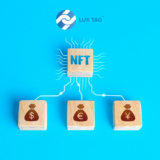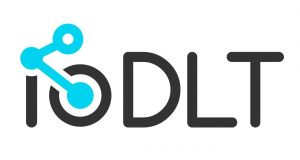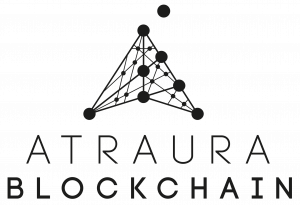What is Ticket Peer to Peer? ~New System to Prevent illegal resale~

First appeared on thetashis
What is Ticket Peer to Peer?
~New System to Prevent illegal resale~
Prevention resale ticket system “Ticket Peer to Peer” developed by LCNEM.
Since it is overwhelmingly attracted in Japan at the stage of release.
LCNEM、『転売防止』チケットシステム「Ticket Peer to Peer」を公開。 https://t.co/rs0DSqRaN3 @PRTIMES_JPから
— LCNEM 日本語 (@lcnem_ja) 2018年9月20日
(translation:
LCNEM revealed “Resale Prevention” Ticket System “Ticket Peer to Peer”)
At this time we will send out for the outgoing world,
· What is “Ticket Peer to Peer”?
· Detailed commentary on “Ticket Peer to Peer”
What is 「Ticket Peet to Peer」?
“Ticket Peer to Peer” is a service that can issue tickets for events, and is made as a SaaS type cloud service with the public blockchains of the cryptocurrency NEM as the back end. It also has a system to ticket tickets by reading the QR code at the event venue.
In order to issue a ticket, application procedures are not particularly necessary, and it is completed with only minimal operation on the website. Since you use a Google Account to sign in to a service, you can begin using the Google account owner (that is, many Internet users) with a minimum number of clicks. Use “Ticket Peer to Peer” by embedding the code in the website organizer ‘s website. We LCNEM also have a document on how to embed it in the Web site.
In terms of user leads, it is also advantageous that applications can be completed within event hosts’ websites and page transitions do not occur.
The greatest feature of this service “Ticket Peer to Peer” is the mechanism of resale prevention applying NEM ‘s public blockchains.
Details will be described later and will be briefly described below.
First, the “address” on the blockchains plays the role of a single ticket. A unique address is issued for each issued ticket.
By the function of the blockchains, it is possible to know whether transactions on the blockchains (corresponding to remittance processing) are received for each address. The ticket not received is “valid”, and the received ticket is “invalid”. For example, when ticketing a ticket by reading the QR code at the event site, a transaction is sent to the address of the ticket at that time and it becomes “invalid”.
Likewise, if someone finds the ticket being resold, by sending a transaction to the address of the ticket on the NEM blockchains (this is an operation that anyone with NEM wallet can do) , you can invalidate the ticket. In other words, you can simultaneously report and invalidate ticket resale. Furthermore, “Who/where informed and invalidated” can also be recorded in a form that can not be tampered with on the blockchains, that is, without objection.
By remitting the remuneration on the blockchains to the first discoverer of resale, it can be used as an incentive for reporting. Since it is possible to send a fee only to the first informant of each ticket, it is difficult for wrongdoing or objection concerning reporting to occur. How much incentive fee is sent to the informant is out of the scope of the service and it depends on event organizer’s discretion.
The profit model is a usage fee model. Pay 50 yen per ticket to be issued to the service side. Payment method is credit card. Working browsers are Chrome, Edge, Opera.
“Ticket Peer to Peer” is already in use on the reception page of the event explanation.“BlockChainJam2018” held on 21st October 2018.
Do you understand so far?
I will describe the detailed commentary on “Ticket Peer to Peer” as follows.
Introduction
On the presumption that
・Ticket is address of blockchains themselves
・Valid if the address has never received a transaction
・Invalid if the address has received a transaction
The secret key of the ticket address is discarded because it is unnecessary.
In other words, assets sent to the ticket address can not be retrieved.
Dashboard
This is a dashboard of “Ticket Peer to Peer”.

The event organizer creates an event and changes the capacity here.
Capacity, already purchased frame, and its pie chart are displayed.
Capacity is 0 at the beginning, and 50 yen + tax will be paid as “Ticket peer-to-peer” usage fee for one person increase.
Apology
- Asking JCB to report an error, so please use visa or master.
- Since we use PaymentRequestAPI for payment, we can not use it in unsupported Safari. Please use Chrome, Edge, Opera.
QR scanner
You can scan the QR code generated by GAS described later. The staff on the ticket examination will open this QR scanner page and work, but staff can use QR scanner page without login. In other words, staff can deal with it just by being taught the URL without the event organizer telling the account to all the staff.
GAS
With API format, it is free to design as you want. It will no longer be transitioned to a ”hideous” ticket sales page.
As you can see in the document below, we have a template for GoogleAppsScript, so if you can implement the form function of the site, We think that you can make it as simple as possible.
The GAS also includes a function to convert the blockchains address as a ticket into QR.
Also, since we record purchasers on spreadsheets, we can respond to any mistakes that may arise.
With the above mentioned GAS, the event participants will receive an email with QR image of the blockchains address attached.
As this QR is informed to others, it may be invalidated, so event participants will keep QRs without publishing them.
Incentive design to prevent resale
That’s not a proper to say This system is “resale impossible”.
If you execute “not resell”, you will make event participants present with an identity card at the time of entering the event and verify it with information associated with the ticket, etc. However, such checking procedures and other costs will be incurred.
On the other hand, although this system is not physically “resale impossible”, it is a ticket system “easy to resale measures” that enables resale measures at low cost.
It means that this system is not to prevent resale at a fixed price among friends.
通報にインセンティブを与えるのはブロックチェーンじゃなくてもできる。ブロックチェーンを使うメリットは通報の順序が明らかになること。例えばただの通報フォームだと通報したのに「先に通報した人がいたので報酬はなしです」ってことが起こりうる。ブロックチェーンに記録させればその真偽は明確。
— メンテごめんて (@gomente_coin) 2018年9月20日
(translation:
There was no such idea. Rather than making the resale itself impossible, by recording the “report” of resale as a transaction that anyone can issue on blockchains, it gives incentives for reporting to everyone while providing transparency, and as a result this system aims at preventing.
It is not even blockchains that give incentives to reporting. The advantage of using blockchains is that the order of reporting becomes clear. For example, although it was reported that it was just a report form, it can happen that “there is no remuneration because there was a person who reported earlier.” Truth is clear if you record it on blockchains.)
Let’s explain how resale measures work.
Under the presumption that suppose there is
•Reseller
•Secondary Purchaser
1. Incentives that resellers conceal the existence of goods
As a matter of course the ticket is invalidated by a third party when it is released, so there is no way to prove that the reseller has a valid ticket stock.
The reseller has to resell without proof that he has stock and increases suspicion.
Suspicion is a risk in other words, risk-avoiding people lose the incentive to purchase secondary from this reseller.
2. Incentives to be reported by resellers
It is an incentive for resellers to report.
For example, the transaction between the reseller and the secondary purchaser is completed successfully. The price is reserved by the reseller and the secondary purchaser gets a ticket.
In this situation, the incentive compatibility condition that the reseller sends an invalidation transaction to the ticket (nem address) sold by the reseller is
“Transaction cost <Remuneration paid for report”.
Because the commission of nem is very cheap, 0.05 xem, even if converted at the current rate (about 1 xem 10 yen?) is 0.5 yen. This is true if the compensation (minus the procedure cost to receive the compensation) exceeds 0.5 yen.
It is safe to think that this is achievable in most situations.
In other words, resellers have incentives to self-report.
In the case of a self-report, the secondary purchaser will see the hell that he can not participate in the event despite paying high money.
If the event organizer strives to notify this risk, it will be effective to deter resale.
※Repeat game
In “Game theory” there is the concept of repeating games.
If it is a one-time prisoner’s dilemma, it is best to not cooperate with each other, but if it is recurring, non-cooperation will not be an optimal solution.
In short, cooperation can be an optimal strategy if you anticipate a long relationship (called the Folk Theorem).
As a result, it is possible that resellers do not self-report in anticipation of long-term relationships, but this depends greatly on subjective judgment of resellers, so it is still risky for secondary purchasers.
3. Incentives for secondary buyers to report
Secondary purchasers can of course notify.
The incentive compatibility condition for reporting is
“Transaction cost <Remuneration paid for report <Ticket sales amount”.
Although it is as explained above that it must be larger than the transaction cost, this time it must be smaller than the ticket sales amount.
That is because if the reward is larger than the ticket sales amount, the reseller will be able to earn infinity by reporting immediately after purchasing the ticket.
However, it is safe to think that this is achievable in most situations.
However, this third incentive will not function unless there is a transfer injunction function when there is a problem with goods like Paypal.
For example, if payment can be suspended by Paypal, the cost for reporting is only the transaction cost, but if the notification of completion of receipt is automatically received, the cost for reporting is not limited to the transaction cost, secondary sales price will be added.
Conclusion
Incentives to suppress resale will work on 1. and 2., including 3., as long as the conditions are satisfied, It is a “Ticket peer-to-peer” that made it possible to make use of this with transparency by blockchains.
The amount of compensation to be set is
“Transaction cost <Remuneration paid for report <Ticket sales amount”
We think that 10% of the ticket sales amount is good :).
Find out more!
https://forum.nem.io/t/ticket-peer-to-peer/19761
https://twitter.com/NEMofficial/status/1067256784631427072?s=19









